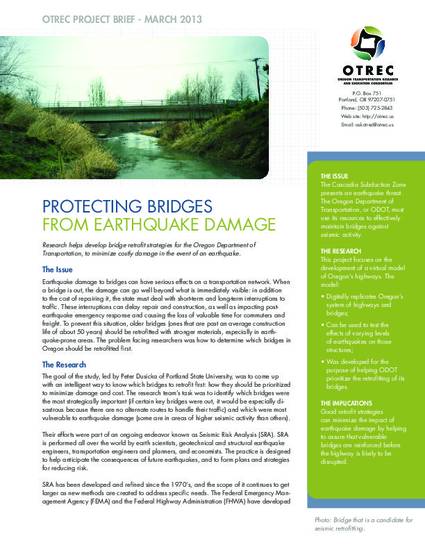
- Bridges -- Retrofitting -- Oregon -- Evaluation -- Planning,
- Bridges -- Oregon -- Design and construction -- Evaluation -- Planning,
- Earthquake resistant design -- Oregon -- Evaluation -- Planning,
- Earthquake hazard analysis -- Oregon -- Planning
Earthquake damage to bridges can have serious effects on a transportation network. When a bridge is out, the damage can go well beyond what is immediately visible: in addition to the cost of repairing it, the state must deal with short-term and long-term interruptions to traffic. These interruptions can delay repair and construction, as well as impacting post earthquake emergency response and causing the loss of valuable time for commuters and freight. To prevent this situation, older bridges (ones that are past an average construction life of about 50 years) should be retrofitted with stronger materials, especially in earthquake- prone areas. The problem facing researchers was how to determine which bridges in Oregon should be retrofitted first.

This is a summary of TREC research project 2009-270, which can be found online at: http://otrec.us/project/270
The final research report associated with this brief can be found at: http://archives.pdx.edu/ds/psu/16833